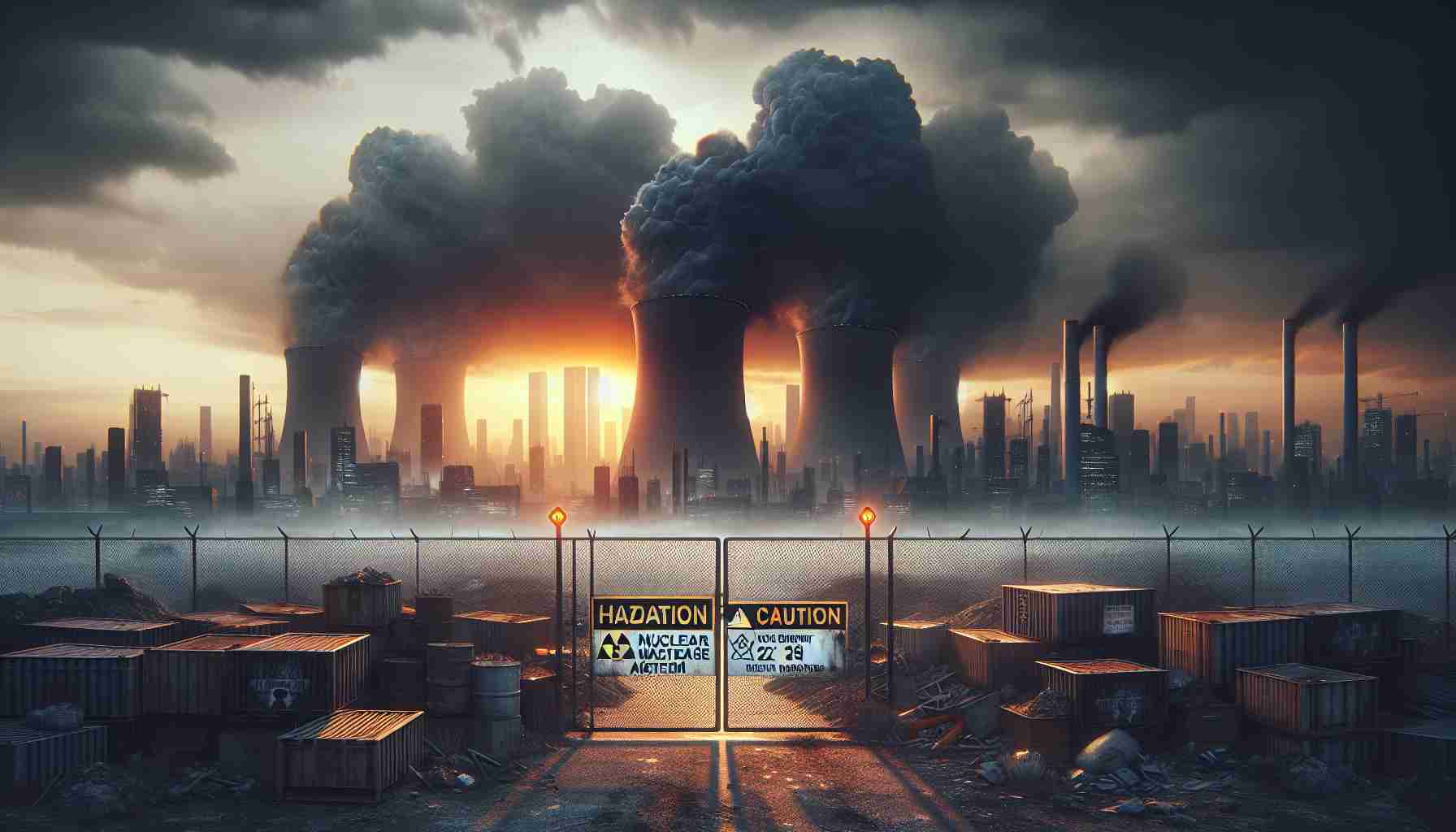In a bold move amidst safety concerns, Japan has revived a nuclear reactor that faced significant scrutiny. On Wednesday, the Onagawa nuclear power plant in northeastern Japan resumed operations after a pause linked to a technical issue. This reactor had previously made headlines in late October, becoming the first in eastern Japan to restart since the catastrophic events of 2011.
The temporary suspension was due to a malfunctioning checking device that had become lodged inside the containment structure. The plant operator, Tohoku Electric Power Co., disclosed that during a routine inspection, they uncovered an inadequately tightened nut on a guide tube joint intended to facilitate the entry of equipment into the reactor.
With the issue rectified, the company is optimistic about initiating power generation later this week, contingent on achieving stable criticality. They are aiming for full commercial operations as early as December. Notably, the Onagawa unit passed stringent safety evaluations in February 2020, adhering to enhanced regulations implemented after the Fukushima Daiichi nuclear disaster.
As Japan edges toward re-embracing nuclear energy, the Onagawa reactor’s journey underscores ongoing debates about safety and energy policy in a region still healing from past tragedies.
Reviving the Nuclear Debate: Japan’s Onagawa Reactor Sparks Renewed Controversy
Japan’s decision to restart the Onagawa nuclear power plant is more than just a technical achievement; it is at the center of a heated discourse surrounding energy security, environmental sustainability, and public safety. As the nation grapples with the implications of reactivating nuclear facilities, it raises significant questions about the future of energy in Japan and its impacts on citizens, communities, and the global landscape.
One of the pressing issues is the growing energy demand in Japan. Following the catastrophic events of 2011, the country heavily reduced its nuclear reliance, leading to increases in fossil fuel imports and electricity costs. Reviving reactors like Onagawa is seen as a pivotal move to restore energy independence, particularly in a world facing climate change challenges. A significant fact to consider is that Japan imports more than 90% of its energy needs, making the reactivation of local energy sources critical for national security.
However, this push to revive nuclear energy is met with public skepticism. Many residents near the Onagawa plant and other nuclear facilities express fears of future accidents. Controversies surrounding nuclear waste disposal and its long-term environmental impact continue to haunt the discussion. For instance, the cleanup of the Fukushima disaster remains incomplete, heightening anxiety about nuclear safety. Public opinion polls indicate a divided nation: while some support the resumption of nuclear power for energy stability, others staunchly oppose it, advocating for renewable energy alternatives.
Economically, the revival of the Onagawa reactor could spur opportunities. It is projected to create jobs in both construction and plant operations, contributing positively to the local economy. Furthermore, increased energy production could stabilize electricity prices, affecting households and businesses alike. However, the dependency on nuclear energy also raises questions about the future of renewable energy initiatives in Japan. Critics argue that focusing on nuclear power could undermine investments in green technologies, hindering the nation’s long-term sustainability goals.
What role will safety regulations play in the future of nuclear energy in Japan? The strict evaluations performed prior to the refueling of the Onagawa reactor align with a broader trend in the energy industry towards heightened regulatory oversight. This may foster more public trust over time, but it necessitates ongoing dialogue between the government, energy companies, and the communities affected. Striking a balance between safety and energy needs remains a pivotal challenge for Japan as it continues to navigate its post-Fukushima identity.
As Japan stands at this crossroads, one must consider the global implications of its decision to restart nuclear reactors. Other countries observing Japan’s energy policy shifts may reevaluate their nuclear strategies, or they may use Japan’s actions to bolster their arguments for or against nuclear energy. The global discourse surrounding nuclear energy will undoubtedly be influenced by Japan’s journey, impacting international energy policies and collaboration on safety measures.
In conclusion, while the Onagawa nuclear power plant’s restart is a vital step towards addressing Japan’s energy needs, it comes with profound societal implications that will resonate across communities, economies, and even international borders for years to come.
For those interested in exploring further about Japan’s energy policies and their impact, please visit Japan Times for in-depth coverage and analysis.
The source of the article is from the blog oinegro.com.br



